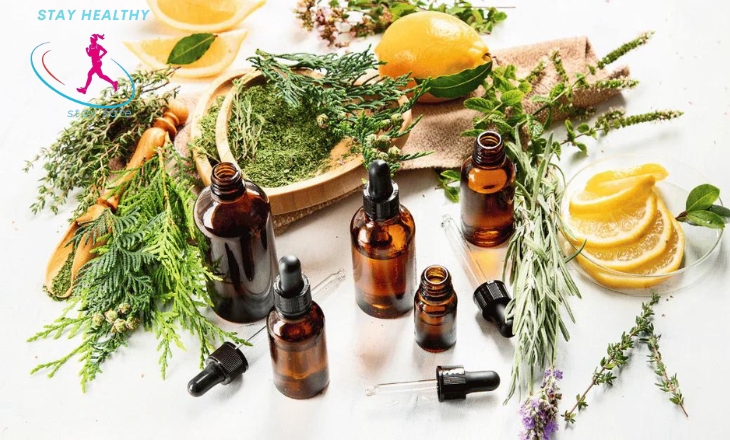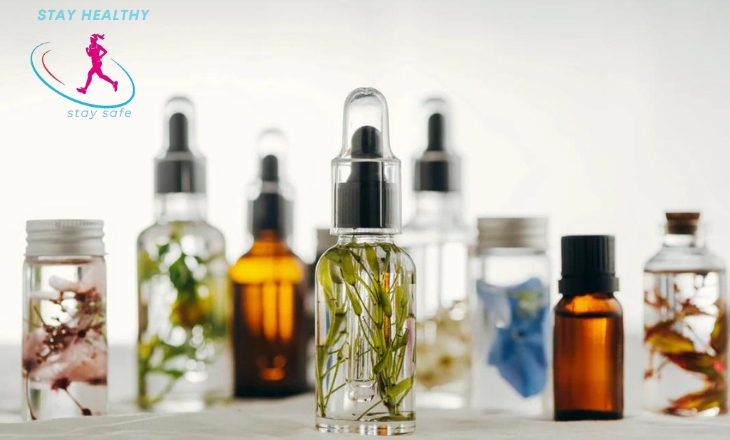In a world filled with synthetic remedies, sometimes the answers to our ailments lie in the most natural and unexpected places. From soothing herbal teas to potent spices, your kitchen is a treasure trove of potential headache relief just waiting for you to unlock its healing powers.
Say goodbye to popping pills and hello to the wholesome goodness that Mother Nature has provided right at your fingertips. Join me on a journey through your spice rack and fridge shelves as we explore the fascinating world of natural headache remedies that can easily be found in your very own kitchen!
Causes of headaches
Headaches can be triggered by a variety of factors, with stress being a major culprit. When we feel overwhelmed or anxious, our muscles tense up, leading to tension headaches. Poor posture is another common cause of headaches, as it puts strain on the muscles in the neck and shoulders. Dehydration can also lead to headaches as it affects the flow of blood and oxygen to the brain.
Certain foods and drinks can trigger headaches in some people. For instance, consuming too much caffeine or alcohol can cause blood vessels in the brain to expand and contract rapidly, resulting in a headache. Food additives such as MSG and artificial sweeteners have also been linked to migraines in some individuals. Identifying these triggers and making necessary lifestyle changes can help reduce the frequency and severity of headaches for many sufferers.
Natural headache remedies
One homeopathic headache remedies is aromatherapy, using essential oils like lavender or peppermint to alleviate pain and promote relaxation. Another effective method is acupressure, which involves applying pressure to specific points on the body to release tension and reduce headache symptoms. Staying well-hydrated throughout the day can help prevent headaches caused by dehydration, as water plays a crucial role in maintaining proper brain function and circulation.

It’s worth exploring these natural remedies as alternatives to over-the-counter medications, as they can offer relief without potential side effects. Experimenting with different methods and finding what works best for you can provide long-lasting benefits for managing headaches naturally. By incorporating these holistic approaches into your routine, you may find yourself experiencing fewer headaches and enjoying greater overall well-being.
Following are some home remedies
Drink water
Not drinking enough water can give you a headache. Studies show that dehydration often causes headaches. Being dehydrated can also affect your focus and mood, making symptoms feel worse.
Luckily, drinking more water can help reduce how often, how long, and how severe headaches are for some people. To prevent dehydration headaches, make sure to drink plenty of water and eat hydrating foods like fruits and veggies.
Take some magnesium
Magnesium is an important mineral that helps with body functions like controlling blood sugar and sending nerve signals. Studies show that magnesium can help reduce headaches, especially for people who get migraines often. Taking magnesium supplements in different amounts and types can help lessen how often and how bad migraine headaches are. For example, 600 mg of magnesium citrate can be good for relieving headaches.

But some people might have stomach problems like diarrhea from taking magnesium supplements, so it’s best to start with a lower dose and talk to a healthcare provider if needed. Pure Encapsulations Magnesium Citrate has 150 mg per capsule and is a good choice for treating headache symptoms with magnesium.
Limit alcohol
Drinking alcohol can be a headache trigger for some people, especially those who often get migraines. It can also worsen tension headaches and cluster headaches, which are very severe.
Alcohol may lead to headaches by causing inflammation, affecting nerve pathways, dehydrating the body, and expanding blood vessels. Cutting back on alcohol could help reduce headache frequency for those prone to them.
Get adequate sleep
Lack of sleep can harm your health and lead to headaches. Research suggests that poor sleep quality and insomnia can worsen headache frequency and intensity. Sleep apnea may cause morning headaches, while insomnia can make tension headaches more severe.

On the other hand, oversleeping can also trigger headaches. To prevent headaches naturally, it’s crucial to get the right amount of rest – aim for 7-9 hours of sleep per night for best results.
Avoid foods high in histamine
Histamine, a natural chemical in the body, affects the immune, digestive, and nervous systems. It’s also present in foods like aged cheeses, fermented foods, beer, wine, smoked fish, and cured meats. For those sensitive to histamine, consuming it may trigger migraines.
Some individuals struggle to break down histamine due to enzyme issues. Avoiding histamine-rich foods could alleviate symptoms like headaches for these individuals.
Try essential oils
Concentrated plant oils called essential oils have therapeutic benefits and can be used topically or ingested. Peppermint, lavender, and eucalyptus oils are recommended for headaches.

Try diffusing or applying a small amount mixed with a carrier oil like jojoba. Eden Botanicals is a top brand for high-quality essential oils.
Try a B-complex vitamin
B vitamins are essential micronutrients that help your body in various ways, such as aiding in neurotransmitter synthesis and converting food into energy. Some B vitamins, like riboflavin (B2), folate, B12, and pyridoxine (B6), have been shown to reduce headache symptoms. Taking a B-complex supplement with all eight B vitamins is a safe and cost-effective way to naturally address headaches.
These vitamins are water-soluble, so any excess is easily eliminated through urine. For a high-quality option, consider Nordic Naturals Vitamin B Complex, which contains easily absorbable forms of B vitamins and undergoes third-party testing for quality assurance.
Soothe pain with a cold compress
Using a cold compress can ease your headache. Applying cold packs to your neck or head reduces inflammation, slows nerve signals, and narrows blood vessels, all helping to alleviate headache pain.
Research shows that cold therapy is beneficial for certain types of headaches, such as those triggered by nitrate medication for heart issues. To make a cold compress, put ice in a waterproof bag and wrap it in a soft towel. Place the compress on the back of your neck, head, or temples for relief from headaches.
Try an elimination diet
Research indicates that certain foods can cause headaches for some individuals. If you experience frequent headaches, you might want to try an elimination diet to see if a specific food is the culprit.

Foods like aged cheeses, alcohol, chocolate, citrus fruits, and coffee are commonly linked to migraines. A study in 2016 showed that removing these trigger foods from the diet helped reduce the frequency and severity of migraine attacks in 50 participants.
Conclusion
There are many natural headache remedies that can be easily found in your kitchen. From ginger tea to peppermint oil, these simple ingredients can provide relief without the need for medication. By incorporating these natural remedies into your routine, you can manage headaches more effectively and avoid potential side effects.
So next time you feel a headache coming on, reach for one of these kitchen staples and experience the power of natural healing. Say goodbye to headaches with the help of your kitchen pantry!
FAQs
What gets rid of a headache fast?
Taking a hot or cold shower can help with headaches. Find a quiet spot to relax with a cool cloth on your forehead. Massaging your head and neck gently can also ease the pain. If stress is causing your headaches, try learning relaxation techniques.
How can I reduce my headache naturally?
Remember to drink plenty of water to stay hydrated. Including water-rich foods such as watermelon, celery, and cucumber in your meals can also be beneficial. Relaxing through meditation, like sitting comfortably and focusing on your breathing until you feel calm, can help ease headache-related tension.
What drink helps a headache?
Try out these different drinks: Ginger tea, known as the Magical Drink, peppermint tea, feverfew tea (also called wild chamomile tea), grape juice, green smoothies, lemon water, and fruit-infused water.
What pressure points relieve headaches?
To help with tension headaches, try massaging the skin between your thumb and pointer finger for 20-30 seconds. Dr. Renee suggests using your opposite hand’s thumb and index finger or pinching and holding the area for 10 seconds.
